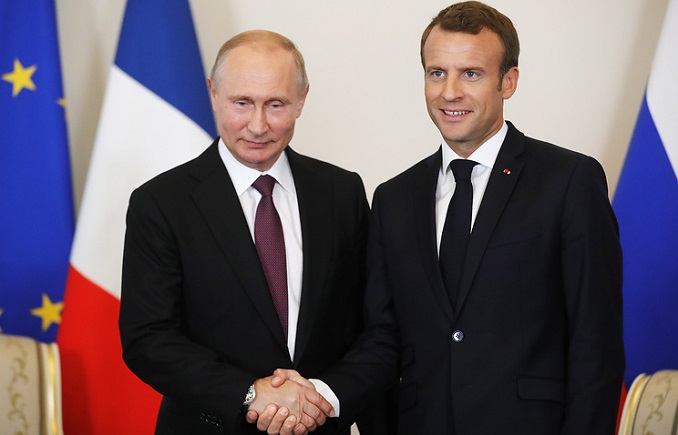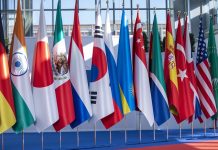French President Emmanuel Macron says relations with Russia need a two-pillar approach, with both dialogue and sanctions, Sputnik News reports.
“I think that sanctions are not sufficient in itself, in themselves, but sanctions are part of the package. I do prefer constructive dialogue, but to have a constructive and efficient dialogue, you need credibility,” Macron said in a Sunday interview with “Face The Nation” on CBS.
The French president said that although he “fully” shares US President Joe Biden’s desire for an open dialogue with Russia, he thinks it is necessary “to define clear red lines with Russia” in order to be credible. Macron said that “an approach based on two pillars” is needed in relations with Moscow.
“If we want to stabilize a lot of existing crises in the world, today, we need an open and frank dialogue with Russia,” Macron said, adding that sanctions are nonetheless needed “after an unacceptable behavior” and “when we’re not aligned.”
On Thursday, the U.S. slapped new sanctions on 32 Russian entities and individuals for their alleged interference in the 2020 U.S. presidential elections and the purported hacking of U.S. software supply chain networks. Under the sanctions, U.S. financial institutions are prohibited from buying Russian government bonds during primary placements after June 14. However, they will still be able to buy and sell Russian government bonds on the secondary market. In addition, the U.S. expelled 10 Russian diplomats from the country.
The Russian Foreign Ministry condemned the new U.S. sanctions as running contrary to the interests of the two nations.
In response to the U.S. sanctions against Russia, Moscow banned eight U.S. citizens from entering the country, including U.S. Attorney General Merrick Garland, U.S. Secretary of Homeland Security Alejandro Mayorkas, Director of National Intelligence Avril Haines and FBI Director Christopher Wray.
The Russian Foreign Ministry condemned the new U.S. sanctions as running contrary to the interests of the two nations.
In response to the U.S. sanctions against Russia, Moscow banned eight U.S. citizens from entering the country, including U.S. Attorney General Merrick Garland, U.S. Secretary of Homeland Security Alejandro Mayorkas, Director of National Intelligence Avril Haines and FBI Director Christopher Wray.
Tensions in the bilateral relations were triggered by the U.S. intelligence report about Russia’s alleged interference in the U.S. election and Moscow’s purported part in the SolarWinds cyber hack. It also followed Biden’s interview with ABC News in which he said Russia President Vladimir Putin would “pay a price” for alleged election meddling and called his Russian counterpart a “killer”.












